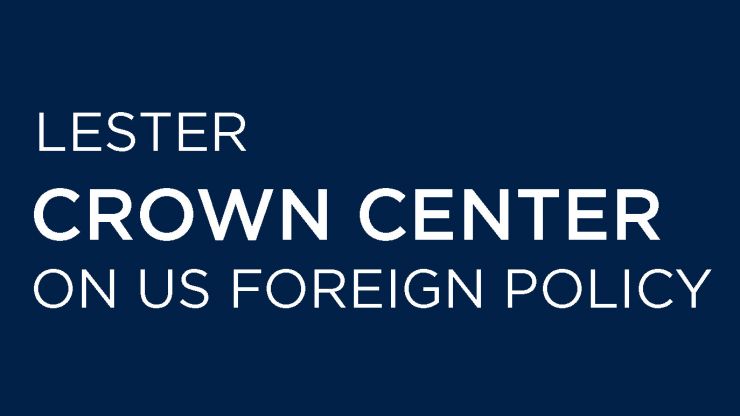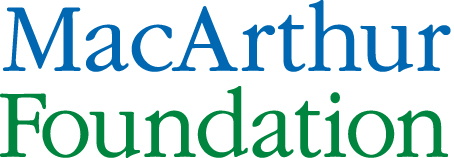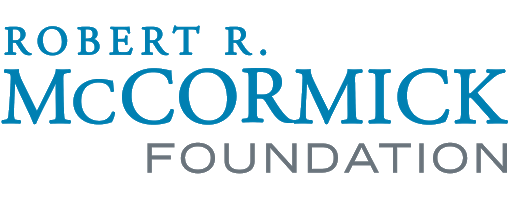The 2018 Chicago Council Survey indicates that Americans now supported active US engagement in world affairs, the largest majority since 1974—except for just after the September 11 attacks.
America Engaged
Executive Summary
In the wake of the 2016 US presidential election, political analysts warned of a dark era ahead. Newly elected President Donald Trump had long expressed opposition to US security alliances, skepticism of free trade, and support for authoritarian leaders such as Vladimir Putin. Since the American public generally relies on their political leaders for foreign policy decisions, many policy watchers cautioned that the country was headed for a populist, unilateralist, and protectionist retreat from global leadership.
While the Trump administration has taken action along this path—unilaterally withdrawing from the Paris and Iran agreements, pulling the United States out from the Trans-Pacific Partnership (TPP) trade agreement, and questioning the value of long-time alliances like NATO—the majority of the American public has not followed this lead.
To the contrary, most Americans have moved in the opposite direction. The largest majority since 1974—except for just after the September 11 attacks—now support active US engagement in world affairs. A solid majority supports multilateral diplomacy, underscored by public willingness to accept international decisions that are not the first choice for the United States. A record number of Americans now acknowledge the benefits of international trade. Even though the United States withdrew from both the Paris Agreement and the Iran nuclear deal, public support for these agreements has actually increased. And as the ultimate indicator of commitment to allies, increased majorities express support for sending US troops to defend both NATO and Asian allies if they are attacked.
Americans Want the United States to Remain Engaged
Despite attempts by the White House to pull the United States back from global engagement, seven in 10 Americans favor the United States taking an active part in world affairs (70%). This reading is a 7 percentage point increase from the 2017 Chicago Council Survey and is the highest recorded level of support since 1974 except for 2002, the first Chicago Council Survey conducted after the September 11 attacks.
A Majority Wants Shared Action on Global Issues
The American public does not envision the United States working alone when playing an active role on the world stage. Rather, a striking majority (91%) say that it is more effective for the United States to work with allies and other countries to achieve its foreign policy goals. Just 8 percent say that it is more effective for the United States to tackle world problems on its own. Sharing leadership on global issues may mean that the United States does not always achieve its preferred policy outcomes. Yet a majority support the United States making decisions with its allies even if it means the United States will sometimes have to go along with a policy that is not its first choice (66% agree, 32% disagree). Similarly, two-thirds of Americans believe that the United States should be more willing to make decisions within the United Nations even if it means that the United States will sometimes have to go along with a policy that is not its first choice (64% agree, 34% disagree)—the highest level of support on this question since it was first asked in 2004, when 66 percent agreed.
Support Is Up for the Iran Deal and the Paris Agreement
President Trump has broken away from several international agreements since taking office, including the Paris Agreement on climate change and the Iran nuclear deal. But the American public has not followed the president’s cues. Majorities of the public say that the United States should participate in the Iran deal (66%) and the Paris Agreement (68%). In fact, support for US participation in both of these high-profile international agreements has risen 6 percentage points over the past year.
It’s More Important to be Admired than Feared
The administration has attempted to change the nature of US influence around the world by using coercive rhetoric toward both allies and hostile actors. Perhaps reflective of this approach, more Americans think that the United States is now more feared (39%) than admired (20%) around the world today, though many volunteer an alternative response, ranging from “a joke” to “weak” to “falling apart.” But almost three times as many Americans think admiration (73%) of the United States is more important than fear (26%) of the United States to achieve US foreign policy goals. As interactions with US allies have strained over the course of the past year, majorities of Americans say that relations with other countries are worsening (56%) and that the United States is losing allies (57%). Just 12 percent of the public says that the United States is gaining allies and 31 percent state there has been no change.
US Public Wants to Maintain or Increase Commitment to NATO
While some administration officials have praised NATO, the president has repeatedly criticized European allies for not spending enough on defense.4 Yet his attacks do not seem to have dented public support for the transatlantic alliance. A majority of Americans continue to favor maintaining (57%) or increasing (18%) US commitment to NATO; in fact, a higher percentage of Americans now favor increasing the US commitment to NATO than ever before.
Support for Using US Troops to Defend Key Allies Has Grown
Americans continue to favor contributing to allies’ security through bases and security commitments, and their willingness to do so has increased since last year. Majorities of Americans support maintaining long-term military bases in South Korea (74%) and Japan (65%); both responses are at record levels since the question was first asked in the 2002 Chicago Council Survey. As in past surveys, a majority continue to support maintaining US bases in Germany (60%). Further, two-thirds of Americans support sending US troops to defend South Korea (64%) and Japan (64%) if attacked by North Korea, and 54 percent support defending Baltic NATO allies with US troops if Russia invades. Each of these measures is at a peak since the Council began asking these questions.
Americans Are High on Trade
The White House is waging trade battles on multiple fronts, but the American public is more positive about the benefits of trade than ever before, surpassing even the previous record ratings of 2017. Large majorities of Americans now say that trade is good for consumers like you (85%), the US economy (82%), and creating jobs in the United States (67%).
While the president has criticized the North American Free Trade Agreement (NAFTA) and withdrawn from the TPP trade agreement, 63 percent of Americans now say NAFTA is good for the US economy, up from 53 percent in 2017, and another record level in Chicago Council surveys. A majority of Americans (61%) also believe the United States should participate in the Comprehensive and Progressive Agreement for Trans-Pacific Partnership, or the CPTPP, a trade agreement formed by the 11 signatories to the original TPP after US withdrawal.
Americans face the possibility of serious trade disruptions, as the United States and China are currently exchanging several rounds of tariffs. While only four in 10 Americans consider a possible trade war with China a critical threat (42%), a combined seven in 10 Americans are very (31%) or somewhat (41%) concerned that a trade war with China will hurt their local economy.5 Trade disputes with Mexico, America’s third-largest trading partner, are somewhat less concerning to the US public: just over half of the public are very (19%) or somewhat (33%) concerned about the impact of a trade war with Mexico on their local economy.
Conclusion
The Trump administration’s bold attempts to reshape US foreign policy have not convinced many Americans to join the bandwagon. The past two years have given the American public a glimpse of President Trump’s alternative vision for the role of the United States in the world. And while Trump’s base continues to share his vision, the majority of Americans do not.
Instead, most Americans are more convinced about the benefits of active US engagement and the need to work with allies. They see US soft power as more effective than muscular intimidation in accomplishing US foreign policy goals and believe the United States is losing allies and world respect. On those specific issues where the White House has taken action—withdrawing from the Iran nuclear deal, the Paris Agreement, and the TPP agreement—Americans are less likely to see them as “wins” and more likely to endorse participating in these agreements. On traditional approaches to US foreign policy, including maintaining military bases abroad, defending key allies if attacked, and supporting trade, Americans have doubled down. The bottom line is that two years into the Trump administration, solid majorities of the American public have rejected the “America First” platform.
Methodology
The analysis in this report is based on data from the 2018 Chicago Council Survey of the American public on foreign policy, a project of the Lester Crown Center on US Foreign Policy. The 2018 Chicago Council Survey was conducted by GfK Custom Research using their large-scale, nationwide online research panel July 12-31, 2018 among a weighted national sample of 2,046 adults, 18 years of age or older, living in all 50 US states and the District of Columbia. The margin of sampling error for the full sample is ±2.37, including a design effect of 1.1954. The margin of error is higher for partisan subgroups or for partial-sample items.
Partisan identification is based on respondents’ answer to a standard partisan self-identification question: “Generally speaking, do you think of yourself as a Republican, a Democrat, an Independent, or what?”
In the overall survey sample, 27 percent self-identified as a Republican in the question above. Slightly more Republicans are defined as Trump Republicans than non-Trump Republicans. Specifically, 15 percent of the overall sample self-identified as Republicans and answered “very favorable” to the question: “Do you have a very favorable, somewhat favorable, somewhat unfavorable, or very unfavorable view of the following world leaders: US President Donald Trump?” Non-Trump Republicans, 12 percent of the overall sample, self-identified as Republican and said they have “somewhat favorable”, “somewhat unfavorable,” or “very unfavorable” of President Trump. Among all self-identified Republicans, 55 percent are “Trump Republicans” and 44 percent are “non-Trump Republicans.”















